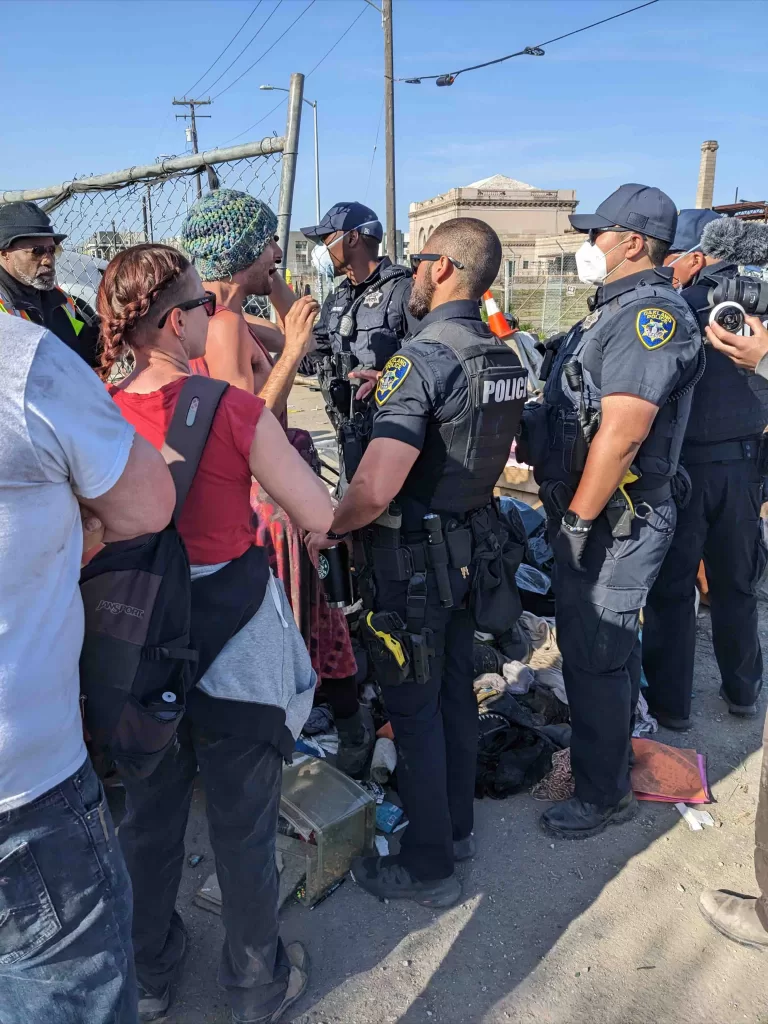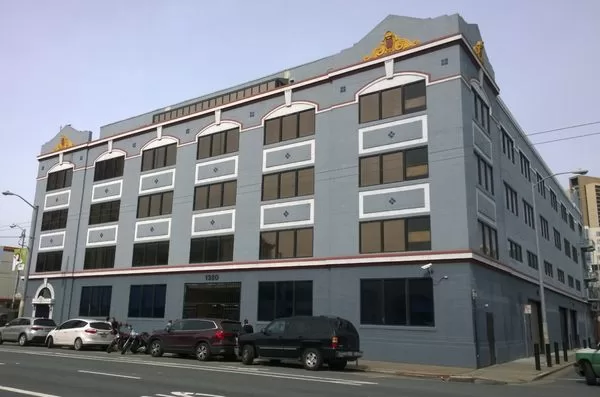Prop 1 Would gut local mental health services and further criminalize the unhoused. The following is an excerpt from a voting guide prepared by Kris Rehl, a writer and organizer with LA Street Care, and was lightly edited for length. See the original document and support Kris’s work at: https://tinyurl.com/no-on-1

More funding for mental health services and housing sounds great…but alas, there’s a big catch. Critics say Prop 1 will cause extreme damage to existing mental healthcare programs and abruptly discontinue mental health services for thousands of people across the state while laying off healthcare workers. And that’s true. In 2004, voters passed the Mental Health Services Act (MHSA), a measure that taxes 1% of income above $1 million to fund county mental health programs. Unfortunately, these programs are so underfunded and understaffed that it frequently takes county mental health professionals hours to respond to a person experiencing a mental health crisis. Prop 1 would exacerbate these shortages by ripping $140 million in MHSA funding from county programs each year and giving it to the state. The state would then issue grants and loans to local governments to build “housing and personalized support services,” but local governments would still have to cover operating costs. This bureaucratic nightmare would remove local avenues for accountability and create a one-size-fits-all program for regions with drastically different populations and needs. The measure features built-in audits that will actually diminish oversight, transferring authority from an independent commission to a huge state agency.

Some Prop 1 supporters claim existing law prohibits people from accessing addiction services. That’s not true. Prop1 would just allow substance and alcohol treatment programs to specifically access MHSA money–but at the expense of mental health funding. The measure also mandates counties to spend 30% of their remaining MHSA funds on housing programs, which would force local governments to forfeit matching funds the federal government provides for healthcare spending. We obviously need more housing and resources, but stretching MHSA funding at the expense of county mental health programs would be gravely irresponsible. Especially when the Yes on 1 coalition straight up lies about what it will deliver, including a claim that it will build 11,000 supportive housing units–and several news outlets have repeated these fabricated numbers. California’s nonpartisan Legislative Analyst Office reports the measure’s massive budget, including a $6.4 billion bond, would build just 4,350 units with no specification as to whether that housing will include supportive services. The analysis also states this “would reduce statewide homelessness by only a small amount.
In fact, two-thirds of Prop 1 funding is earmarked for facilities with limited-term treatment beds. These types of facilities have helped fuel an uptick in forced treatment, a dangerous trend that studies show is ineffective and drastically increases suicide rates. These facilities don’t even create a pathway to permanent housing, so unhoused patients are typically released onto the street without support or housing.
California is the epicenter of the nation’s housing affordability and homelessness crisis. Our state is home to 30% of America’s unhoused population compared to just 12% of the country’s total population. Loss of income is the primary reason 90% of unhoused Californians lose housing. And of the 71,429 eviction notices filed in Los Angeles between February and November 2023, 96% were for “non-payment of rent.” The average rent for a one-bedroom apartment is $2,395 in a city with a $16 minimum wage. We very clearly have a housing affordability crisis. But Newsom won’t address root causes like rent stabilization, tenants rights, or a living wage because that would piss off the landlord lobby, Big Real Estate, and corporations. Instead, Newsom has erroneously tried to frame this as a mental health and addiction crisis despite plenty of evidence to the contrary. Prop 1, has been a personal project of Newsom this election season, even adopting the slogan “treatment, not tents,” underscoring his superficial focus on visible poverty rather than lifting his constituents out of it.
“Forced treatment, not tents” would be more accurate. Prop 1 was able to initially garner broader support by ensuring that funding would be limited to “unlocked,” voluntary facilities. But a last-minute bait and switch stripped the measure of language prohibiting its money from being used on involuntary confinement. Federal law prohibits hospitals from restraining psychiatric patients except to prevent them from harming themselves or others, but Newsom chose to unveil Prop 1 at LA County General the same month the hospital made headlines for its practice of restraining psychiatric patients 50x more than the national average. It’s on the nose, but Newsom isn’t known for his subtlety.
Prop 1’s forced treatment beds are the final puzzle piece in Newsom’s statewide scheme to resurrect mass institutionalization. The enforcement mechanism is his signature program, CARE Courts, a carceral program that mandates forced treatment on those deemed a “danger to themselves or others” even if they have not committed any harm or crime. If a person doesn’t successfully complete a “CARE Plan,” the Court may place them in a conservatorship. The ACLU describes this as “a draconian legal status that strips people of the right to make decisions about almost every aspect of their lives.”
A lawsuit from disability and civil rights advocates has already challenged the constitutionality of CARE Courts, arguing the new system will violate due process and equal protection rights under the state constitution. Advocates also point to existing systemic racism, which will ensure these violations “inevitably fall hardest on Black, brown, and Indigenous people, who are routinely misdiagnosed with serious mental health disabilities.” On top of Prop 1 swiping funding from county mental health programs, CARE Courts will further strain on their resources, further diminishing existing services. But hey, at least Gavin Newsom will have a place to forcibly warehouse the poor.
Who else supports this measure?
- Cops. Entry to a CARE Court starts with a referral “by a family member, behavioral health provider, first responder, or other approved party.” Meanwhile, more than 20% of people fatally shot by cops have a mental health disability. Guess who will be in charge of enforcing referrals.
- National Alliance on Mental Illness, a group founded by family members of people diagnosed with mental illness. Emphasis on “family members of” instead of people with mental health disabilities, mental health professionals, or even advocates.
Who opposes this measure?
- Cal Voices, California’s oldest mental health advocacy agency. Cal Voices is dedicated to improving lives through advocacy, education, and research. They provide peer services that foster recovery, reduce stigma and discrimination, and improve cultural competency through self-help, education, and culturally relevant research.
- California Association of Mental Health Peer-Run Organizations, a group that works to eliminate stigma, and advance self-determination for all those affected by mental health issues.
- The Howard Jarvis Taxpayers Association, a conservative group representing the interests of wealthy hoarders, opposes Prop 1 because it would allow the state government to borrow $6.4 billion. Which begs the question–why doesn’t Newsom just increase that bond to $7 or $8 billion and raise taxes for California’s 186 billionaires to pay for it instead of raiding mental health programs.
